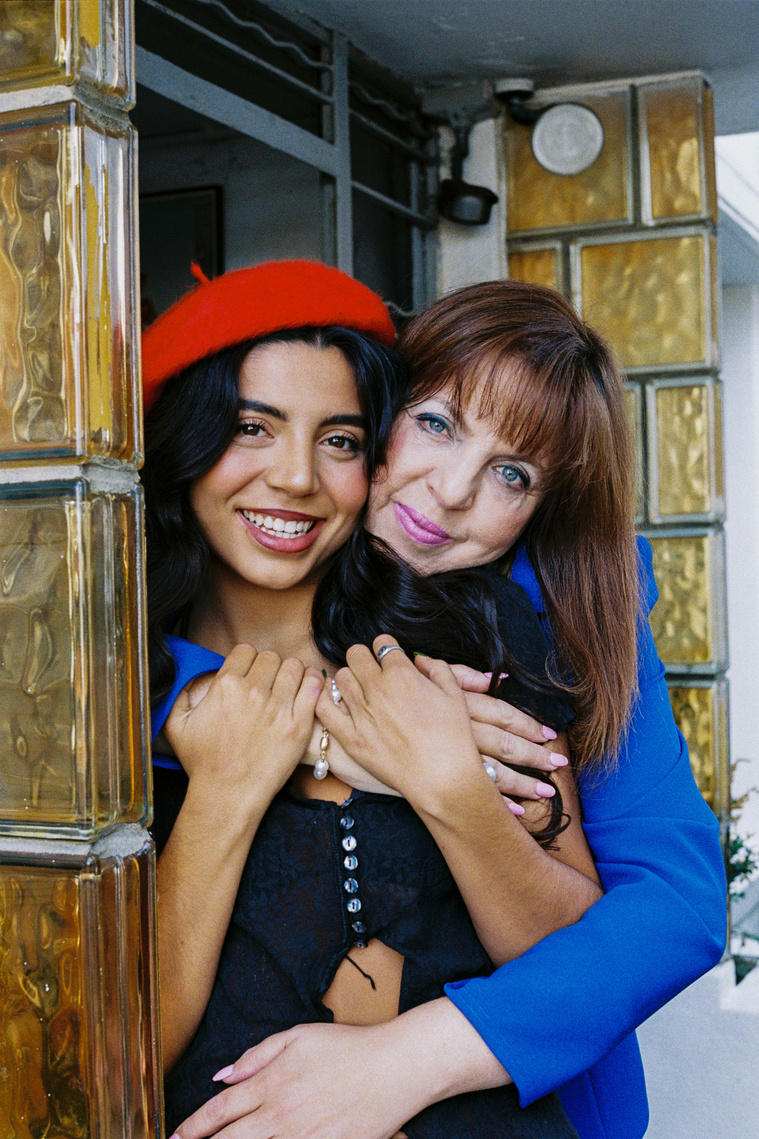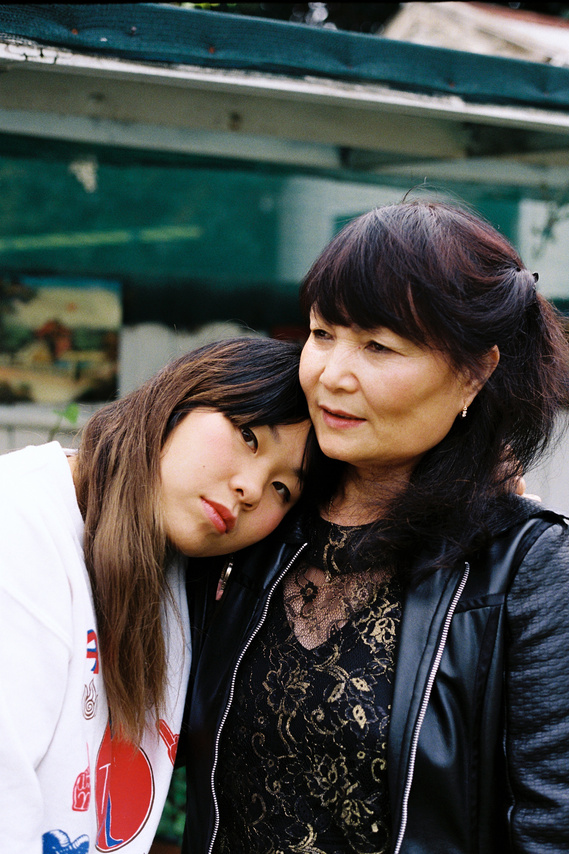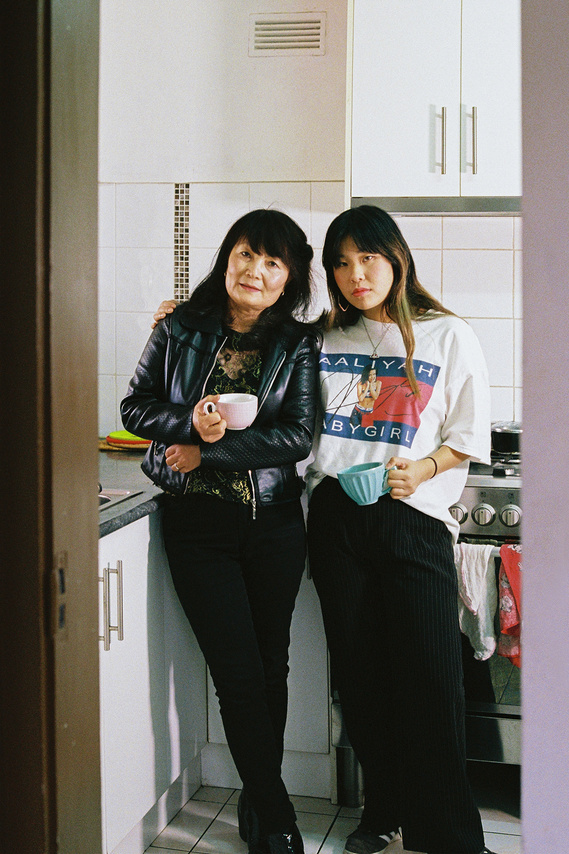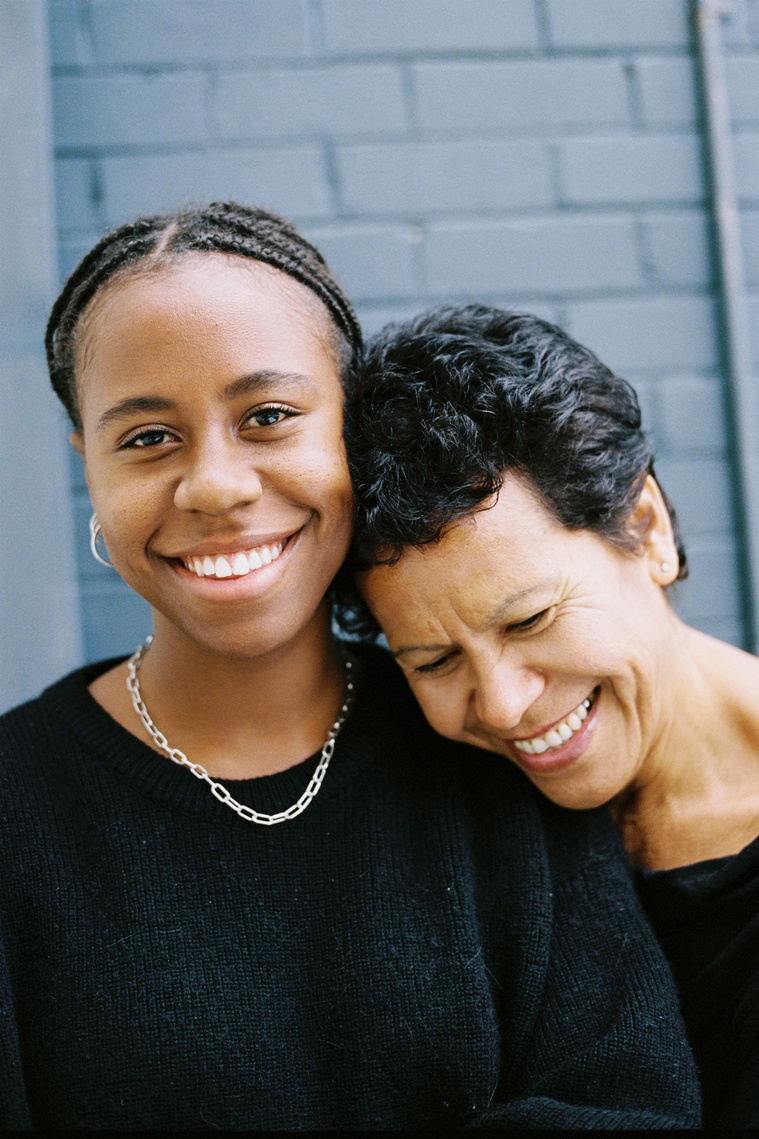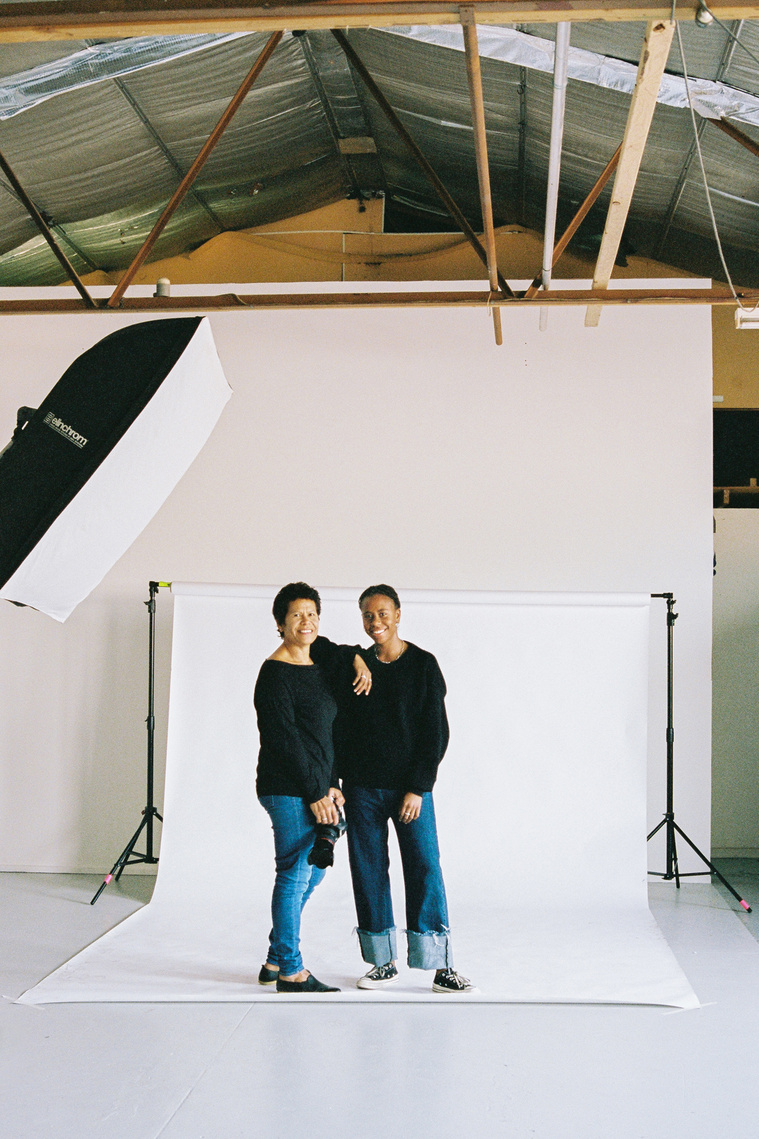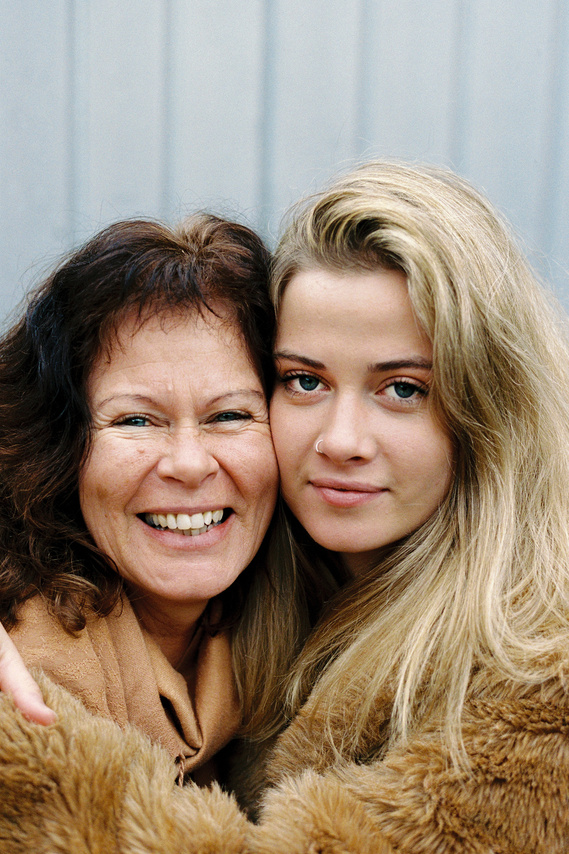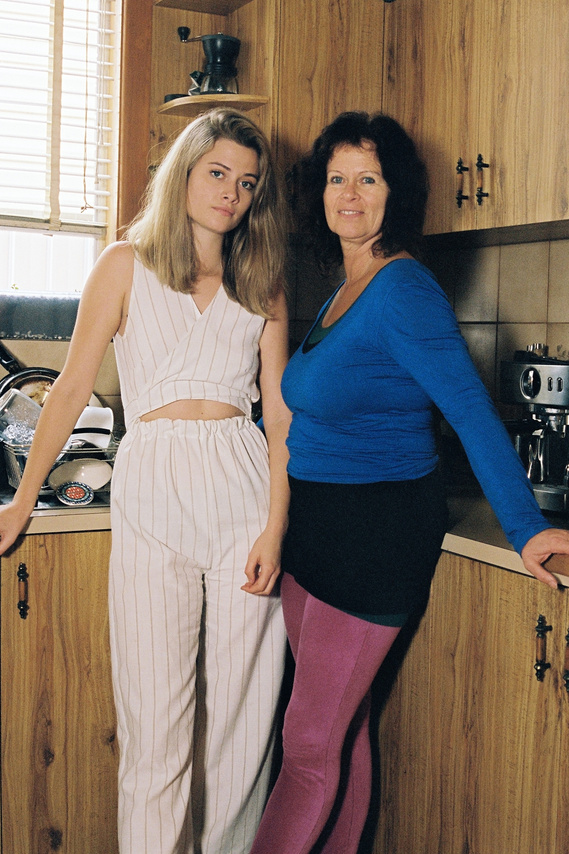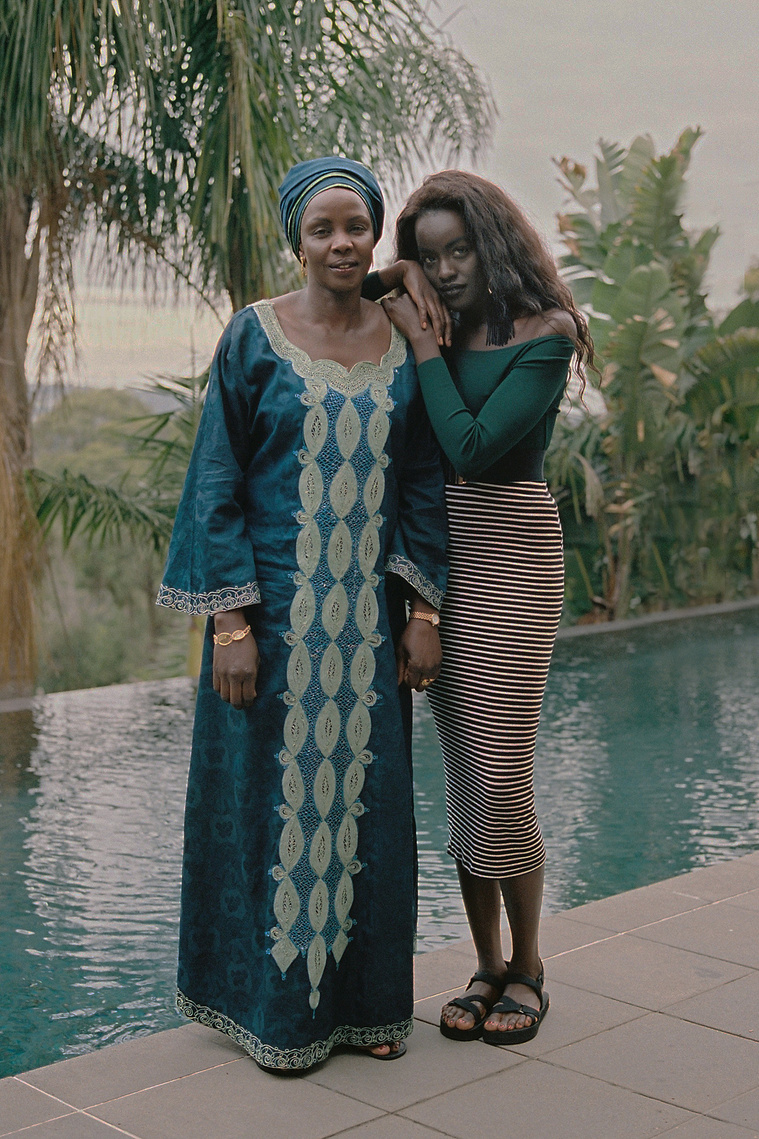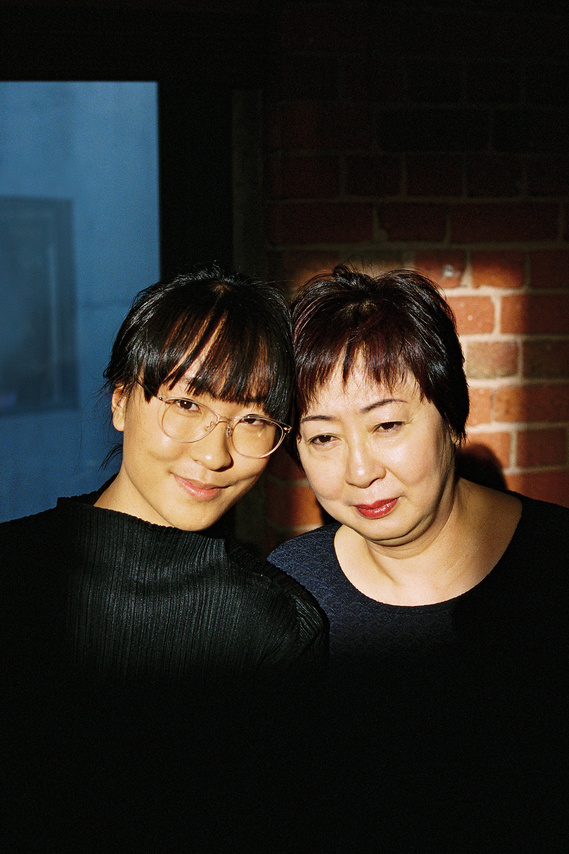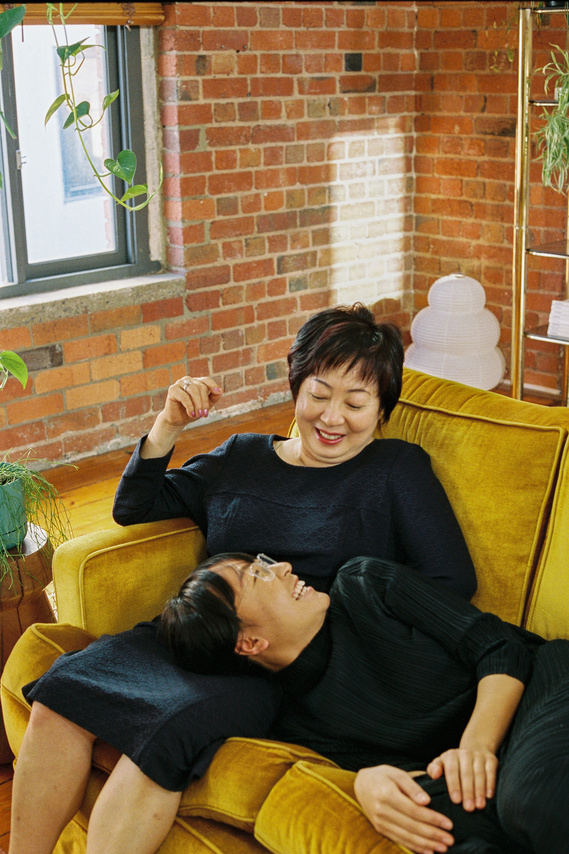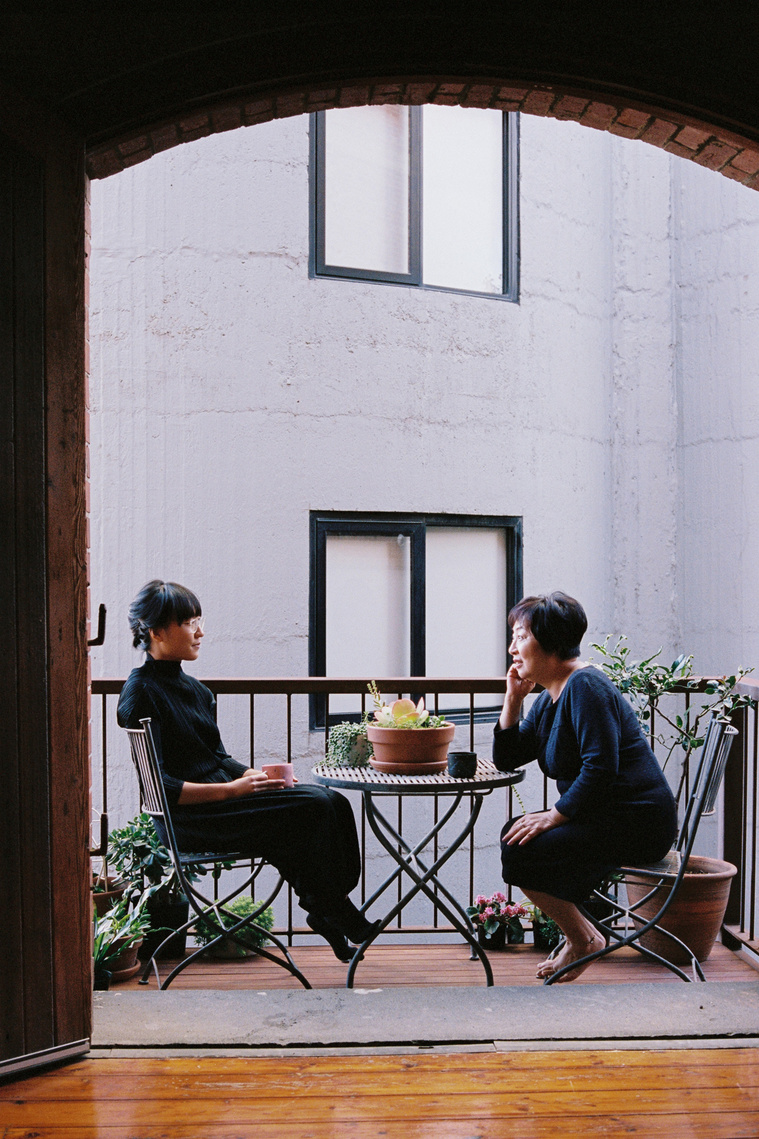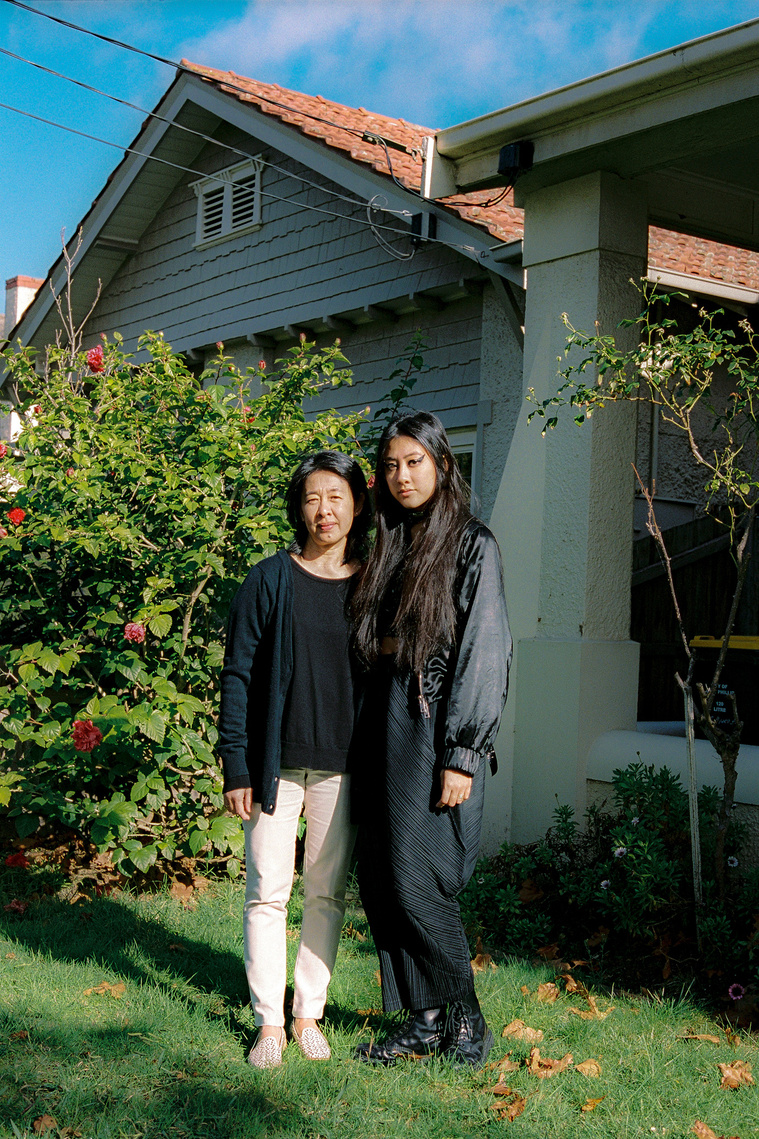migrant mums through the lens of their first gen daughters
Photography by Pat Casten. Words by Alex Manatakis. Featured on i-D.
As a country enriched by diverse migrant cultures, Australia is home to countless strong mums who gave up all they knew to find a better life for their families. For Mother’s Day this year, i-D celebrates the impact and power of these women and meet their first generation daughters. With personal reflections, we discover how their brave decisions changed lives.
Raquelle Saba, 21, Student + Jess Saba, 55, Philanthropist
"We share the kind of love that’s written about in love stories. I will never truly be able to articulate our relationship; words are limited in in their capabilities. "
Jessica, when did you migrate to Melbourne and why?
I migrated to Melbourne in 1988. I fled the horrors of the Lebanese Civil War and came to this country so that I could raise a family in a safe environment where they could prosper and live without the fear of being killed at any moment.
What sacrifices did you have to make to be able to raise Raquelle in Australia?
I had to leave my family, friends and everything that I had built in Lebanon. Being away from my parents was very hard for me. I was too young to be dealing with so many issues. I grew up very fast and unfortunately lost both of my parents not too long after establishing myself in Melbourne. Being away from them and losing so much time with them is a very painful reality for me that I don’t think I’ll ever get over.
How would you say life in your early 20s differs for both of you?
Jess: At Raquelle’s age I moved half way across the world. I was married and raising my first daughter whilst still studying. In my teens I was very restricted as a woman in the Middle East. I wish we had the Internet and social media so that I could have been more connected to the world.
Raquelle: I am not limited by anything and hearing about mum’s experiences growing up makes me appreciate my all of the opportunities that are open to me.
How would you describe your relationship Raquelle?
Transparent, honest, supporting and truly unimaginable. We share the kind of love that’s written about in love stories. I will never truly be able to articulate our relationship; words are limited in in their capabilities.
Bridgette Le, Musician, 23 + Loan Tran, 58, Seamstress
When did you migrate to Melbourne and why?
We migrated to Melbourne in 1991. Due to the communist regime, we fled Vietnam by boat, applied for recognition as refugees in Hong Kong and after three years we were sponsored over to Australia by my brother. We left for freedom.
What sacrifices did you have to make to be able to raise Bridgette in Australia?
It was definitely a matter of life or death for me to get on that boat and leave Vietnam. I left behind 29 years of my life and my family. I sold everything I had to have a place on that tiny boat and to travel at sea for 40 days.
"It was definitely a matter of life or death for me to get on that boat and leave Vietnam."
How would you say life in your early 20s differs for both of you?
Loan: Finding a job in Vietnam was difficult. We had no government support like young people here. Life was limited and restricted and the fear of the government was always in the back of my mind.
Bridgette: The way my mum lived in her 20s is in total contrast to mine. I don't live under fear and I'm free to state my opinions and live how I please. I take it for granted that I'm able to work as a musician or even have an option to do something creative. It's unsettling to think that my mum waking up at my age wouldn't even have access to the most basic of necessities, it definitely puts things into perspective for me.
What do you love most about your mum Bridgette?
What I love most about mum is her sense of humour. She's quite sassy and is forthright in her views and has definitely instilled that in me, she's always made a point to stand up for myself and not to take bullshit from anyone in life.
Veronique Robi, Retail Manager, 22 + Yvonne Qumi, Photographer, 60
Yvonne, when did you migrate to Melbourne and why?
In 1978 I left Fiji to meet up with a friend in Melbourne. There were so many choices for casual work so I stayed with the intention to save and travel around Australia.
What can Voni do that you never could?
Study in an area of choice with financial support.
What do you love most about your mum Voni?
Her strength. She’s shown me the importance of being independent not rely on anyone else, especially in a relationship. She is so self-less and given up many things for myself and my two sisters.
What would you like to thank her for?
Supporting me through my studies and raising me to be strong, patient and kind.
What is your favourite memory with your mum?
When she took my sister and I to Fiji to meet our relatives and my only living grandparent Bubu.
Nina Saulwick, Waitress, 21 + Gitesha Brendel, 57, Spiritual Healer
What sacrifices did you have to make to be able to raise Nina in Australia?
I had to leave my entire home country with everyone I knew, most importantly my family behind. The first two years of living here were sometimes very painful, missing all that I knew and feeling like a bit of an outsider.
"Nina, thank God, doesn’t carry the heaviness of the dark past of Germany’s 3rd Reich and the post war depression"
How would you say life in your early 20s differs for both of you?
Mum: Nina, thank God, doesn’t carry the heaviness of the dark past of Germany’s 3rd Reich and the post war depression, or the imminent threat of the cold war that was looming over the collective consciousness like an oppressive cloud in Europe when I was growing up.
Nina: I feel extremely privileged to be growing up in Melbourne within the progressive and inclusive social circles I am a part of, amongst such creatively inspiring and socially and politically progressive peers. I think such an environment is a rarity even in this modern day, let alone in comparison to the era my mum grew up in.
What would you like to thank your mum for Nina?
Her generosity, how much time she dedicates to me and the authenticity with which her advice is always delivered. Thank you for often being able to articulate my feelings better than I am able to myself. Thank you for being the lifeline I am always first to call in crisis.
Dijok Mai, 22, Visual Merchandiser + Nyawarga Mai, 44, Housewife
When did you migrate to Melbourne and why?
I arrived in Melbourne with my three children, my step daughter and my brother in law's son in 2003. I wanted my children to experience a better life and get a proper education. Back home in Kenya it was difficult to provide the basic needs such as food, healthcare, clothing and other needs for my children so the best option was to join my sons over in Australia.
How would you say life in your early 20s differs for both of you?
Nyawarga: I got married at the age of 16 and had my first child when I was 19 so you can already see how different my early 20's were when compared to Dijok's. I had to grow up fast, I had not only a child to take care of - but an entire household. I was responsible in raising my brothers and sisters in law.
Dijok: From the conversations, it seems like mum had to be subservient in her marriage and at such a young age her life revolved around her family. I feel like right now I have more freedom in making decisions about my life and there's no limits to what I can do. I have no cultural barriers and nowhere as much responsibility as mum had.
What do you love most about your mum Dijok?
I love that she sacrificed everything to give us a better life. Mum has been through quite a lot in her lifetime. I know life probably would have been easier if she stayed together with her husband its very inspiring to see what a strong woman she has remained despite all her hardships. I look up to and love her for that.
Claudia Lau, Ceramicist, 20 + Vanessa Lau, Restaurateur
Vanessa, when did you migrate to Melbourne and why?
I immigrated to Melbourne from Hong Kong in 1978 when I was 21 years old. I didn’t really have a choice in moving - my father passed away when I was 12 and we didn’t have a very good living situation in Hong Kong. My mother wanted us to move to Australia so we could live a different life.
What can Claudia do, that you never could?
My family was so poor I had to support the family so I missed out on a childhood. When I was thirteen, I was working as a tailor, helping my mum support the family and take care of my younger brothers. The highest level of education I have is year four. Claudia is much more fortunate than I was. I sent her to a private school, and she has much more freedom and opportunities than I had.
"The concept of love is interesting for me, culturally speaking. I’ve realised that expressions of love in Chinese culture manifest in really different ways from how Western families express it."
Growing up I never really had a verbal ‘I love you.’ But in its place I had the gesture of both my parents doing things out of love for me –unconditionally. Growing up with this lack of verbal iteration was sometimes difficult, but having matured I realise that I love both my parents the way they give everything expecting nothing. And in that unconditional love I am unconditionally grateful.
What would you like to thank your mum for?
I really admire Mum. It’s inspiring to think that she came to Australia at my age to build what she has now. Without that courage to come here, I wouldn’t have half the life I have now. In short, I thank you Mum for your intuition, discipline and kindness. You’re idealistic and realistic at the same time, so I guess that explains my craziness too!
Solange Ting, Fashion Student, 21 + Beatrice Dulong-Ting, 52
Beatrice, When did you migrate to Melbourne and why?
I was born in Laos and migrated to France in the early 70s, during the Vietnam War. I grew up in the south of France and moved to Australia in 1995.
What can Solange do that you never could?
Everything, because of cultural/ social background and a very strict Asian family upbringing. Myself and younger sister were always very protected by my parents and we never had as much freedom as my two brothers.
How would you say life in your early 20s differs for both of you?
Solange: I feel like I definitely have a lot more freedom socially, to do what I want. Culturally being exposed to what’s happening in the world so rapidly with internet and the connections we are able to make via social media is probably a big difference too, which is linked closely to the creative opportunities I have.
What would you like to thank your mum for Solange?
For being a constant support and inspiration to my practice and work, more importantly in everyday life. I don’t think I tell her often enough how much I appreciate her patience and love when I am stressed and over emotional, which is 95% of the time whilst in this course. Merci Maman, je t’aime.
Thank you to Alex Manatakis, Nina Saulwick, Damian Davitt, All the mothers & daughters involved and to i-D magazine.
• • •
